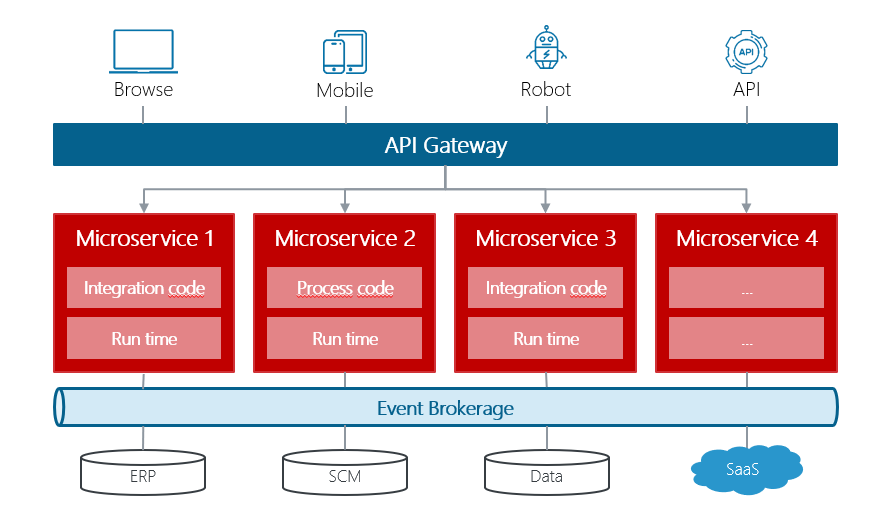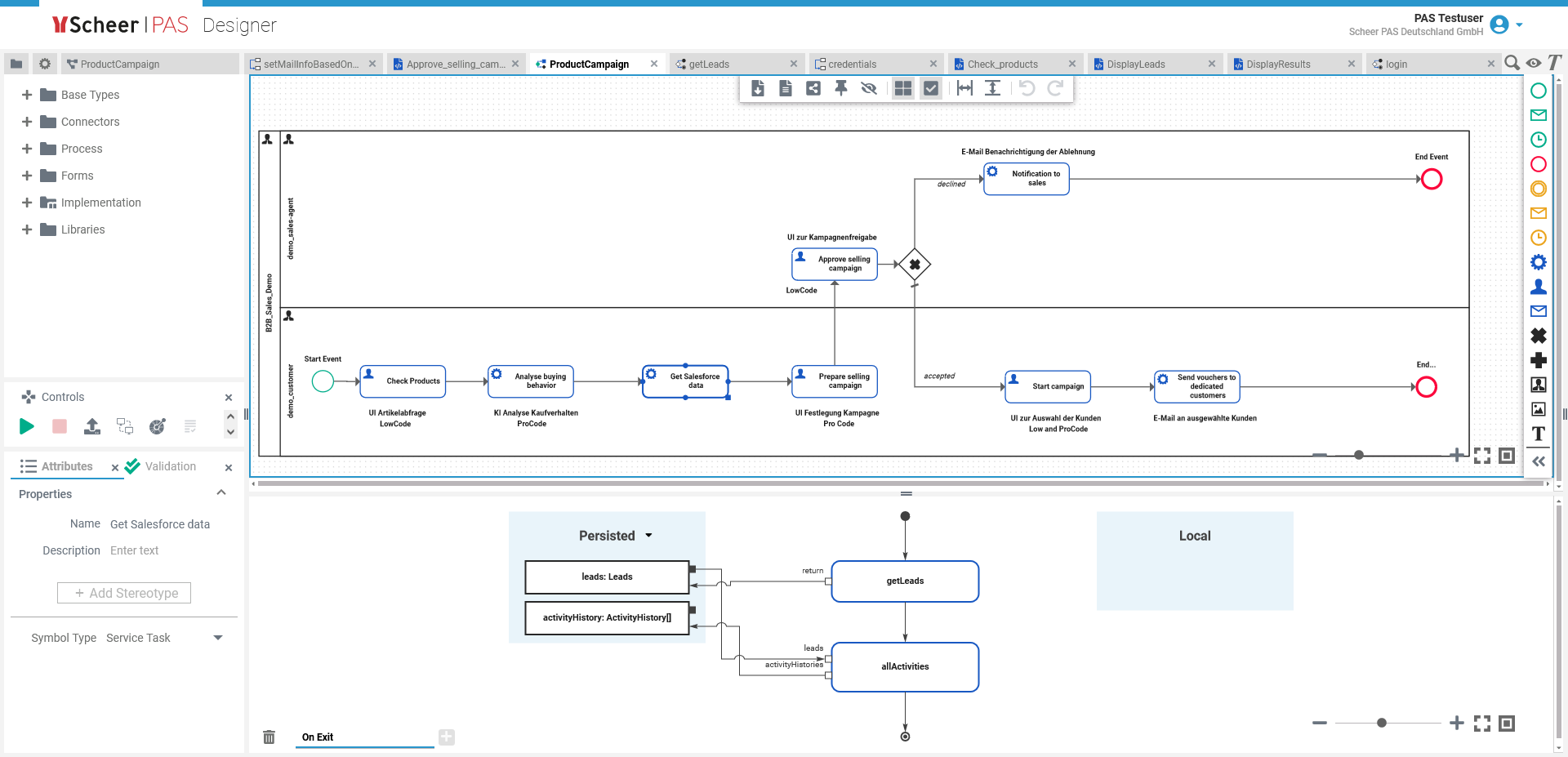Home [spacer] Integration (iPaaS)
Improved business processes through Integration (iPaaS)
Integration (iPaaS) enables the necessary networking to solve software or hardware problems that occur over time. As a result, you improve your business processes and operational performance and reduce your operating costs. Integration (iPaaS) is an essential foundation for enabling companies to respond flexibly to changing business requirements.

Integration (iPaaS) is the process of linking and connecting subsystems into a holistic system. Integration is the layer of a platform. If we refer to the software systems of a company, the aim is to connect the various systems, such as CRM, ERP, etc., and to enable the mutual exchange of data. Microservices are various combined parts of an application on which the integration layer is based.
Integration (iPaaS) provides solutions for a wide range of use cases. It enables simple queries from a variety of websites as well as receiving information from different core systems such as CRM, ERP, enterprise resource planning or time and attendance systems. It also enables the synchronization of master data from different systems in a single MDM system. The possibilities of integration are almost unlimited.
It makes no difference whether these are pure software systems that communicate with each other or whether hardware components such as sensors are integrated. IoT and edge components can also be integrated seamlessly.
As diverse as the application areas are, so are the communication channels. The simplest is the synchronous path, for example querying a website. In addition, there is asynchronous communication, which enables time- and event-dependent communication, to name just the two most important cases.
Last but not least, Integration (iPaaS) allows individual data to be processed or combined over any transmission channel. In other words, source data can be formatted, combined, or transformed for the target system. Likewise, data from multiple systems can be collected and aggregated before being transferred to a target system.
When integrating with Scheer PAS, we rely on the proven combination between microservices and a classic service-oriented architecture.
Microservices are becoming increasingly important in times of a heterogeneous IT landscape. They enable the modularization of software in various forms. Large projects can be separated into small units/services and remain maintainable.
Deployment is a key factor here: By cleverly splitting the deployment, for example in Docker containers, individual microservices with different interfaces can address different systems. This is where the service-oriented architecture (SOA) comes into play. This ensures a decentralized and independent infrastructure and avoids monolithic systems that are difficult to maintain.
Read more about microservices in our blog post.

The ideal foundation
Problems in individual services cannot affect other services. This makes Scheer PAS solutions very stable. Services can be put into operation or replaced by new versions independently of each other without downtime. Deployment of a service takes only a few seconds, depending on the scope: The ideal foundation for an iterative approach to complex solutions.
Scheer PAS starts with a process-based model. The service is implemented synchronously or asynchronously as required. From this process, Scheer PAS generates a functionally equivalent xUML state machine with persistent states - a very powerful approach: The generated service is immediately packaged and deployed, and the entire process is recorded. It writes log entries during every state transition, creating a fully transparent service.
You can add individual steps to the model as you go, but still have a running service from the very first minute.
Scheer PAS integration is not a monolithic container; the services do not run “in” the Scheer PAS integration, but rather as independent processes directly in the operating system.
The solutions can be scaled almost linearly, depending on your resource requirements. Small solutions in particular are quite frugal and have no significant overhead.
More importantly, Scheer PAS Integration (iPaaS) is only limited in its scaling by the system resources provided, not by software or license restrictions.
The advantages of microservices in Integration (iPaaS):
- Modularization and decoupling of applications
- Detailed logging and monitoring through asynchronous communication
- Agility through fast and uncomplicated adaptation or replacement of individual microservices
- Better functional separation during development due to modularity
- Robustness through independence and protection of the services
- Better scalability through extension of individual microservices
- Simplified maintenance through focusing on individual services
The challenge
The intelligent, flexible integration of IT landscapes is a prerequisite for the implementation of digitization strategies. Without it, companies cannot efficiently exploit the new possibilities of the IoT, the integration of customers, partners and suppliers, and the potential of e-commerce and artificial intelligence.
The pace of digitization is increasing, driven by hypes, trends and the presumed potential for efficiency gains. New systems complement existing IT architectures in hybrid landscapes: there are systems both in the cloud and on premises and, in many cases, legacy systems that companies continue to rely on. Nevertheless, companies want to digitize quickly, integrate flexibly and securely.

Integration (iPaaS) with Scheer PAS thus offers not only a classic Enterprise Service Bus (ESB), but also an integration layer based on microservices that can be implemented and managed through modular, flexible, and agile methods.
The process-based approach of the services makes all steps transparent for logging, tracing and analysis.
